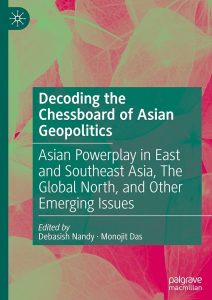 “North Korea’s Foreign Policy in Its Regional Setting: Irrational, Dynastic, or Realist?”
“North Korea’s Foreign Policy in Its Regional Setting: Irrational, Dynastic, or Realist?”
저자: Dylan Motin(아시아연구소 방문연구원)
Decoding the Chessboard of Asian Geopolitics: Asian Powerplay in East and Southeast Asia, The Global North, and Other Emerging Issues (edited by Debasish Nandy, Monojit Das, Palgrave Macmilan, 2025)
North Korea remains infamous as Asia’s black sheep. The country is generally dismissed as reclusive, unpredictable, and aggressive. However, the worsening U.S.-China competition is turning East Asia into a dangerous powder keg, and the Korean Peninsula is once again a flashpoint for great power politics. Therefore, and now that Pyongyang possesses a working nuclear arsenal, ‘getting North Korea right’ is more urgent than ever. Most pundits explain North Korean foreign policy by the Kim dynasty’s eagerness to maintain its grip on power. Others simply believe that North Korean leaders are irrational and eschatological ideologues. In this chapter, I argue that neither viewpoint properly accounts for North Korea’s behavior. Instead, I make the case that Pyongyang acts upon realist motives. Its foreign policy is rational and driven by the country’s position in the international system. First, I describe Pyongyang’s foreign policymaking environment and basic settings. I use realist theorizing to develop a framework of how a state in that situation should behave. Second, I check whether this framework applies to North Korean foreign policy by providing an overview of its defense posture and diplomacy from its inception until today. This historical account shows that Pyongyang pursued a sound, national interest-based foreign policy. In the last part, I lay out the implications for the future of the country’s regional alignments and suggest how neighbors should deal with North Korea to reduce tensions and promote long-term stability in Asia.

